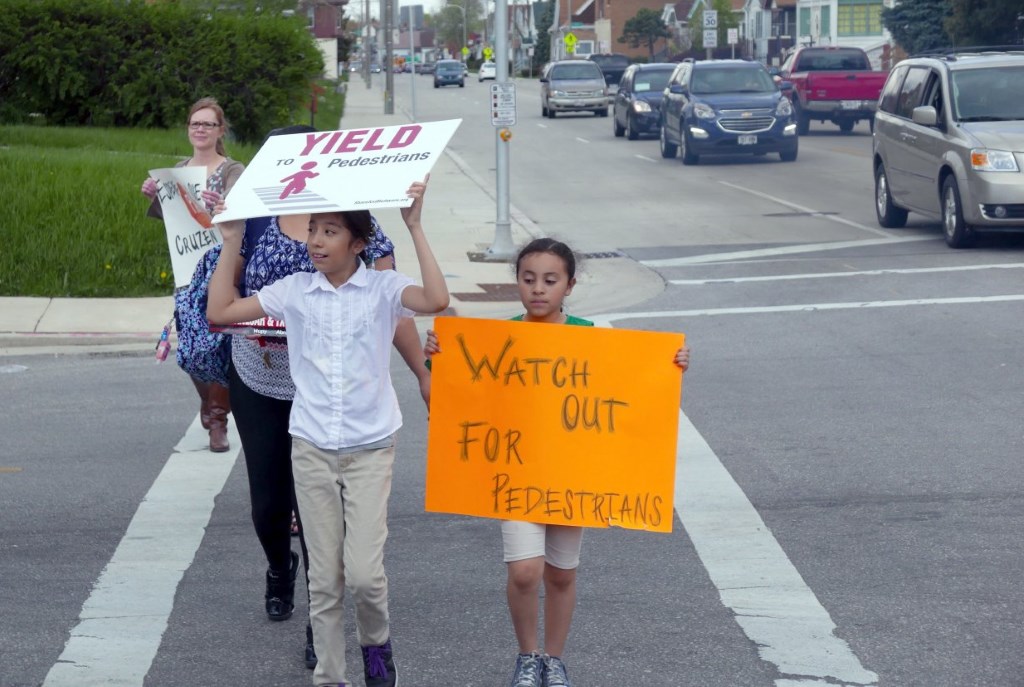Is the Design of Cities Hurting our Health?
All the city news you can use.
Every day at The Overhead Wire we sort through over 1,500 news items about cities and share the best ones with our email list. At the end of the week, we take some of the most popular stories and share them with Urban Milwaukee readers. They are national (or international) links, sometimes entertaining and sometimes absurd, but hopefully useful.
La Mesa as mobility politics microcosm: To pay for a $160B transportation plan that addressed the climate, San Diego regional planners set their sights on a road usage charge. Unfortunately, now it’s become a hot button political issue as local Republicans see it as a way to win votes hoping people vote on pocket book issues over the climate. The discussion is also a microcosm of the energy versus climate policy currently being had around the world. (Justin Worland | Time Magazine)
A modular project for the missing middle: When developers build new housing, they are often stuck on two sides of the spectrum, luxury or affordable. But most of the current housing needs are at middle income levels. To build more of this type of family size housing, a Chicago developer has gone modular for their 40 unit project. The units are expected to cost at around $245K compared to the city median of $315K. (Nate Berg | Fast Company)
Starchitect dreams are our nightmares: Starchitect and cult of personality fantasies that purport to solve real problems are given all kind of publicity and press but never seem to be rooted in reality. That leaves the rest of us in the lurch when the problems such as climate change continue without a real solution. These big plans are often silly, unrealistic, and part of a capitalist hope that endless growth will save us from ourselves. (John Kazior | The Baffler)
Is the design of cities making us sick? Our cities have benefitted greatly from scientific advances including vaccines for polio and a better understanding of how disease is spread. But our cities are not being designed in ways that promote the health of our population. School location decisions don’t allow kids to walk or bike to school while streets are often designed without adequate crossings. In addition to environmental impact statements, perhaps we should consider health as well. (Alan Ehrenhalt | Governing)
Quote of the Week
In Portland, you can just park your cart somewhere, and it can just be in one spot, and in a lot of cities, that’s just not the case. So, I think that alone is kind of like the main reason Portland has such a vibrant food cart culture — you can have a set location.
-Portland food cart owner Jace Krause in Eater on what makes Portland’s food scene work.
This week on the podcast, Paul Lewis, policy director at the Eno Center for Transportation, discusses the transit capital cost report “Saving Time and Making Cents: A Blueprint for Building Transit Better”.
Want more links to read? Visit The Overhead Wire and signup.
Urban Reads
-
Congestion Pricing Cuts Air Pollution in New York City
 Dec 14th, 2025 by Jeff Wood
Dec 14th, 2025 by Jeff Wood
-
We Think We Love to Drive. But Do We Really?
 Dec 7th, 2025 by Jeff Wood
Dec 7th, 2025 by Jeff Wood
-
Can Scott Wiener Tackle America’s Housing Crisis?
 Nov 23rd, 2025 by Jeff Wood
Nov 23rd, 2025 by Jeff Wood






















